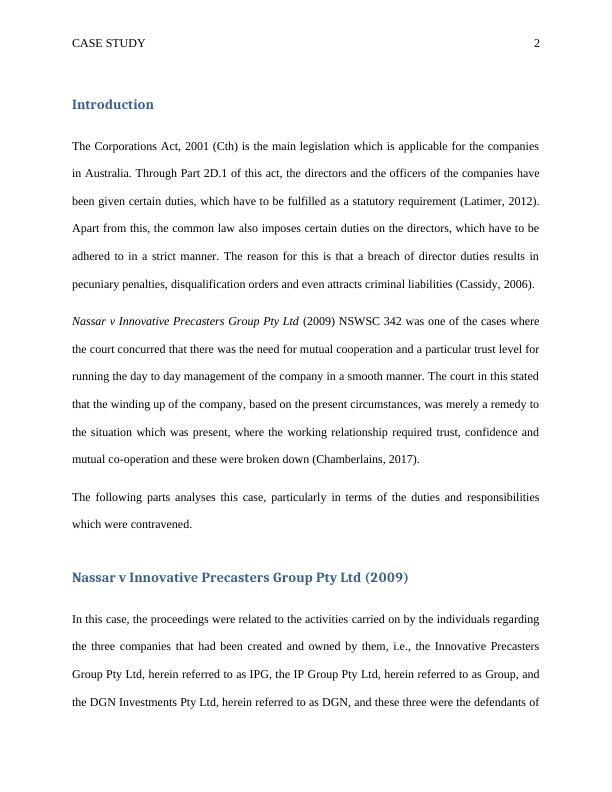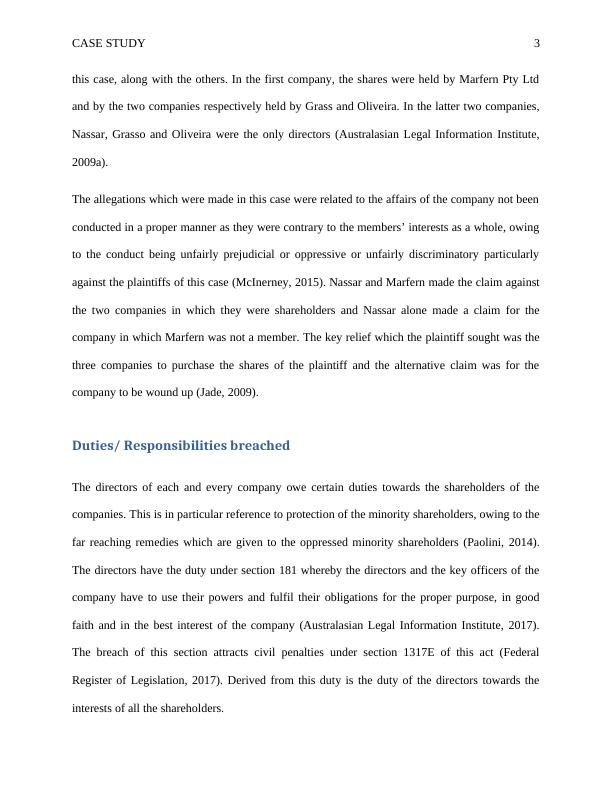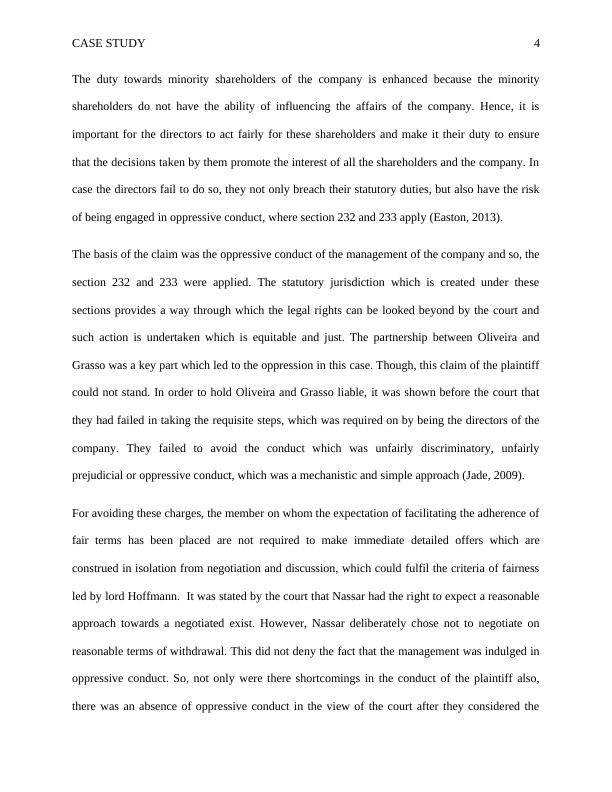Group Assignment Nassar v Innovative Precasters Group Pty Ltd (2009) NSWSC 342 2017 (Student Details:) 07-Sep-17 Introduction
11 Pages2787 Words226 Views
Added on 2019-11-26
About This Document
Nassar v Innovative Precasters Group Pty Ltd (2009) NSWSC 342 2017 (Student Details: ) 07-Sep-17 Introduction The Corporations Act, 2001 (Cth) is the main legislation which is applicable for the companies in Australia. Nassar v Innovative Precasters Group Pty Ltd (2009) NSWSC 342 was one of the cases where the court concurred that there was the need for mutual cooperation and a particular trust level for running the day to day management of the company in a smooth manner
Group Assignment Nassar v Innovative Precasters Group Pty Ltd (2009) NSWSC 342 2017 (Student Details:) 07-Sep-17 Introduction
Added on 2019-11-26
ShareRelated Documents
End of preview
Want to access all the pages? Upload your documents or become a member.
The case of Fodare Pty Ltd v Shearn
|10
|932
|53
Assignment Business and Corporation Law
|11
|2850
|91
Brief of Fodare Pty Ltd v Shear Assignment
|11
|2609
|43
Groeneveld Australia Pty Ltd & Ors v Nolten & Ors (No 3) [2010] VSC 533
|12
|1234
|24
Business and Corporate Law Assignment Answers
|10
|2627
|47
Corporate Law Assignment Case Study
|10
|2601
|119




